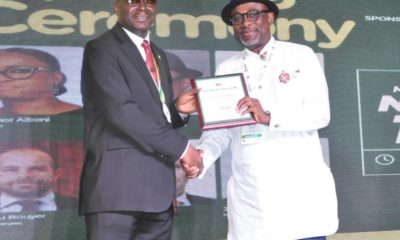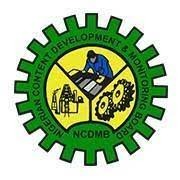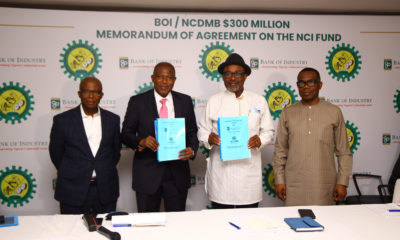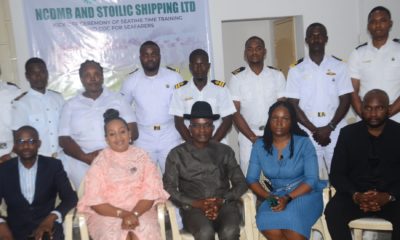Business
NCDMB, AFREXIM, APPO Chart New Funding Models For African Oil Industry
The Nigerian Content Development and Monitoring Board (NCDMB), African Petroleum Producers’ Organization (APPO),m and Africa Export-Import Bank (AFREXIMBank) have outlined new and sustainable models of funding oil and gas investments in Africa, using resources drawn from the continent and de-emphasizing international financiers.
The new pathways were some of the key outcomes of the African Local Content Investment Forum (ALIF) hosted by the NCDMB in Lagos on Monday and form part of the concerted efforts to overcome the decision of western nations and their financial institutions, and international operating oil companies to suspend funding of new investments in hydrocarbon projects because of their advocacy for energy transition and green energy.
The rally by African institutions is also intended to respond to the sustained push by western nations for Africa to abandon her hydrocarbon resources by attracting or deploying funding to the oil and gas industry and is coming on the heels of COP26 event held in Glasgow in late 2021 where leading advocates of energy transition made fresh commitments to curb methane emissions, align the finance sector with net-zero by 2050, ditch the internal combustion engine, accelerate the phase-out of coal, and end international financing for fossil fuels.
The Executive Secretary of NCDMB, Engr Simbi Kesiye Wabote in his welcome address, stated that the African oil-producing countries need to continue exploiting their hydrocarbon resources to fuel their developmental and economic activities, but their actions must be backed by an urgent strategy to address funding, investment, and technological challenges.
He argued that the challenge of inadequate energy is partly the reason why Africa is faced with poverty, conflicts, migration, brain drain and ranks very low on Human Development Index.
He suggested that the African Export-Import Bank (AfreximBank), which supports several oil and gas deals in the continent, the African Development Bank (AfDB), and other funds from Development Financial Institutions (DFIs) in Africa could be explored for funding hydrocarbon development projects. He also recommended that credible businessmen in the continent could also be motivated to pick interest in the industry, adding that “there must be a means of aggregating the various funds so that big-ticket funding transactions can be carried out.”
In his comments, the Secretary-General, African Petroleum Producers’ Organization, (APPO), Dr. Omar Farouk Ibrahim pointed out that a major study commissioned by APPO on the Future of the Oil and Gas Industry in Africa in the Light of the Energy Transition revealed that the oil and gas industry in Africa would need a new development model to survive the energy transition.
The new model would emphasize greater cooperation and collaboration among African oil and gas producing countries. He stated that: “the model shall also seek to emphasize a continental-wide approach to addressing the funding challenge, the capacity development challenge, the lack of cross-border and regional energy infrastructure challenge, the technology deficit challenge and the underdeveloped energy market challenge, using the African Continental Free Trade Agreement as an enabling vehicle.”
On sources of finance for energy projects in Africa in the absence of the traditional financiers, the APPO scribe recommended that various oil-producing countries should enact laws that provide for a portion of windfalls from oil and gas sales to be re-invested in the industry.
According to him, “we need to find ways of getting African oil and gas producing countries governments to commit a certain percentage of the windfalls to a special fund for the sustenance of the oil and gas industry during the transition period. A guaranteed source of revenue is the only guarantee for the success of the new order we want to see in Africa.”
Ibrahim added that revenue shall not come from the private sector alone because the issue is a matter of national security. He insisted that “none of the financial institutions operating in Africa today can afford to provide all the funds required for the oil and gas industry in Africa to operate and grow, and at the same time meet its original mandate.”
Acknowledging the impact of the global energy transition on investment philosophies of international operating companies and financial institutions, the Managing Director of AfreximBank, Dr. Benedict Oramah stated that African countries still rely on fossil fuels for growth and sustainable development, hence there is a need to continue financing oil and gas development in the continent to avoid destabilizing their economies.
The Managing Director who was represented by the Director and Head Advisory and Capital Markets, Mr. Ibrahim Sagna assured of the bank’s commitment to the African oil and gas sector, pointing out that it had extended loans to players in the industry to the tune of $5bn by the third quarter of 2021.
He said the bank would continue to finance economically viable oil and gas transactions and would work with stakeholders to explore the feasibility of the Africa Local Content Development Fund.
Minister of State for Petroleum Resources, Chief Timipre Sylva spoke at the event and said that sustainable funding is required in all aspects of the African petroleum industry, including upstream field development projects, pipelines, depots, terminals, refineries, petrochemical plants, and oil & gas research & development and training institutions.
He regretted that several regional development projects have been constrained by funding, including the West African Gas Pipeline (WAGP) and the Trans-Sahara Gas Pipeline (TSGP).
Represented by the Permanent Secretary, Dr. Nasir Sani Gwarzo, the Minister said the Africa Continental Free Trade Area agreement and its growth aspirations can only be actualized if the continent has a vibrant oil and gas sector, in view of the oil industry’s capacity to harness resources from other sectors.
Corporate Communications
March 10, 2022
Business
Tinubu Moves To Transform Tragedy To Prosperity With Livestock Investment
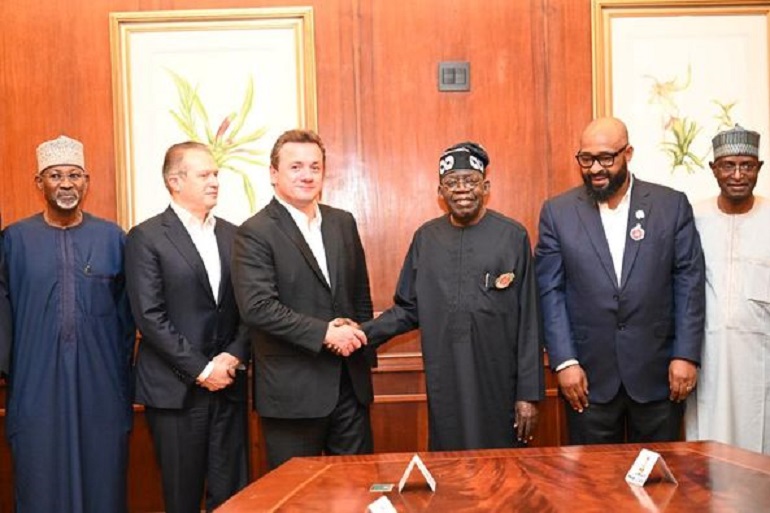
Nigeria’s President, Bola Ahmed Tinubu is of the view that his administration’s renewed focus in driving international and local investments into livestock sector of the agricultural value-chain will end the crisis of farmer-herder clashes, eradicate hunger and poverty in addition to promoting economic prosperity.
President Tinubu said this Thursday in Rio de Janeiro, Brazil at the signing of a Letter of Intent between the Nigerian Government and the JBS S.A, one of the top three largest meat processing companies globally.
“What we are doing right now is that we are solving a problem that afflicted humanity in that part of Africa, clashes between farmers and migrating cows that have caused some life and bloodshed when there is a modern, civilized way to solve those problems and even bring a successful economy out of it.
ALSO READ: JUST IN: Senate Approves Tinubu’s ₦1.77trn Loan Request
“We are trying to turn a situation of tragedy, hopelessness into economic opportunity, see through problems and see the opportunity that is involved in it.”
The Nigerian leader called on the company to see the considerable potentials in what he called the $2.5billion livestock investment opportunities in Nigeria, especially with its huge population and tap into it, given JBS S.A’s globally recognized expertise in the area of guaranteeing food security.
“We’ve heard so much about you in terms of the reputation, and we believe in the partnership we are forging today.
“Food security is extremely important. As we talk right now, there is hunger. However, there is huge hope. And you are one of those hopes that we are looking at.”
President Tinubu told the JBS top executives that Nigeria is ready to do business with them, assuring them of a good return on their investment.
Prior to his visit to Brazil, President had commissioned a team of Nigerian officials and private sector players to take the advantage of the G20 Leaders’ Summit in Rio to conduct a study tour of Sao Paulo, Brazil and explore the opportunities in livestock development, meat processing, seed development and multiplication for key grains.
In his remarks, the Minister of Livestock Development, Idi Muhktar Mahia, who led the delegation, reported to the President that the team embarked on guided, extended and intensive tours of companies on the scale of their global reach, the integrated nature of their operations as well as the deployment of advanced technology. He added that from their interactions with various companies, JBS S.A. was chosen being the second largest meat processing company in the world with the capacity to process 33,000 cattle daily and over eight million birds daily, using advanced zero-waste practices. The company employs over 200,000 people across its subsidiaries in more than 50 countries in the world including United States, Canada, Mexico, Saudi Arabia among others.
Wesley Batista, founder and President of the JBS group, said the company is the largest employer of labour in Brazil with over $79 billion dollars revenue already in year 2024.
“We are glad to work with Nigeria to work together to develop the livestock industry there. We think it’s a good opportunity for our business in Nigeria and Africa as we believe Nigeria can be the center of supply of protein to many countries in Africa. We look forward to working with you. We are almost in December and this year is almost gone. We hope to be in Nigeria as soon as possible,” the founder and Chief Executive said.
Other members of the delegation included Minister of State Agriculture and Food Security Hon. Aliyu Sabi Abdullahi, Co-chairman Presidential Livestock Reform Committee, Professor Attahiru Jega, the Secretary of the Committee, Professor Mohammed Kuta Yahya, and the Chief Executive Officer of Nigerian Investment Promotion Council, Aisha Rimi.
Business
NANTA Champions Nigeria’s Tourism Revival With ₦742m Investment
The National Association of Nigeria Travel Agencies (NANTA) has disclosed an investment of ₦742 million over the past three years to position Nigeria as a premier tourism destination at the annual World Travel Market (WTM) in London.
Speaking in Lagos on Thursday, NANTA’s immediate past president, Mrs. Susan Akporiaye, revealed that the funds were used for exhibition pavilions, magazine publications, and logistical support for members attending the prestigious trade show.
“In three years, NANTA has spent ₦742,226,100 to deliberately put Nigeria on the global tourism map at the WTM. This was achieved with only skeletal support in 2022 and 2023,” Akporiaye said.
READ MORE: Adeleke Represents SW On Ad Hoc Committee on Nat’l Electrification Plan
According to Akporiaye, the association received minimal support in its early years of participation.
In 2022, La Campagne Tropicana Beach Resort and Air Peace contributed by placing advertisements on the Nigerian pavilion and in the association’s magazine. By 2023, Ibom Air joined the effort, supporting NANTA with adverts, while La Campagne Tropicana maintained its support.
The 2024 edition, however, marked a turning point. Akporiaye noted that for the first time, Ibom Air went beyond advertisements to co-exhibit, alongside Eko Hotels and Sabre Travel Network. Their contributions made Nigeria’s representation at WTM more robust and impactful.
“Sabre Travel Network also supported us, so we had their graphics, as well as Ibom Air’s, displayed on our stand. Their contributions made our 2024 participation very grand,” she added.
Akporiaye highlighted that 90% of the funds for WTM participation came directly from NANTA members, underscoring their commitment to Nigeria’s tourism development.
“This shows that we are true patriots, and we deserve national recognition for our efforts,” she said.
NANTA began attending the WTM in 2022 to fill the gap left by Nigeria’s absence from the event for over 10 years.
The association saw the need to promote the country’s tourism potential and create international business opportunities for its members.
“It’s been a wonderful and successful three years that NANTA has participated in WTM, filling the gap left by Nigeria’s absence for over 10 years. We are glad to have handed over the baton of Nigeria’s participation at WTM to the Nigerian government this year,” Akporiaye said.
Through its participation, NANTA has secured affiliations with international tourism boards, organized product training for members, and raised awareness about Nigeria as a destination.
These efforts have also led to partnerships with global airlines and travel boards, fostering significant growth for members’ businesses.
“Our participation at WTM has helped members’ businesses grow significantly. We have formed partnerships with airlines and travel boards worldwide.
“Our greatest achievement at WTM is drawing Nigeria’s attention back to the need to exhibit at the global travel market,” Akporiaye said.
The initiative has also inspired members to expand their horizons into global Meetings, Incentives, Conferences, and Exhibitions (MICE) events.
Business
CSR: Dangote Cement Fuels Education With Support Projects At Lagos Schools
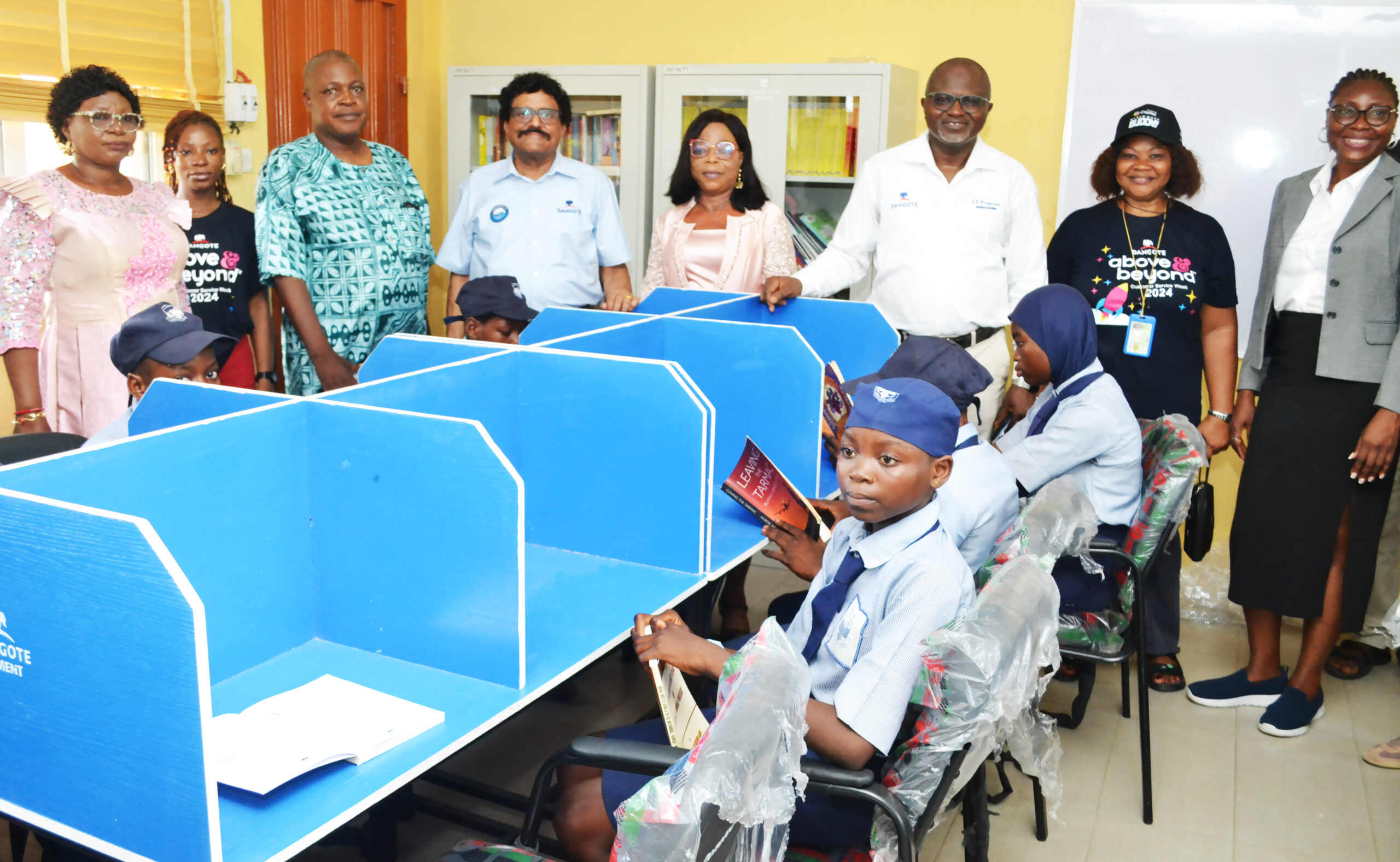
Dangote Cement Plc, a leading cement manufacturer, has donated multi-million Naira educational support projects to secondary schools in Lagos as part of its social investment initiatives.
The company in a statement explained that the move is aimed at complementing the government’s efforts in providing quality and sustainable education in the state.
It was gathered that the projects were commissioned and handed over to various schools in the Ikoyi-Obalende Local Council Development Area, align with the Sustainable Development Goals (SDGs) on education. These goals focus on ensuring inclusive, equitable, and quality education, as well as promoting lifelong learning opportunities for all.
The projects, warmly received by both teachers and students, include 100 dual school desks for Ilado Community Junior High School and Wahab Folawiyo Senior High School, alongside a refurbished and fully equipped Chemistry Laboratory at the Government Senior Secondary School, Ikoyi.
ALSO READ: Dangote Cement Ibese Fetes Host Communities’ Senior Citizens
Also donated were reading tables, chairs, and bookshelves for the library at Government Junior Secondary School, Ikoyi.
A celebration also took place at Falomo Junior High School and Ireti Senior Grammar School, both in Ikoyi, where the company donated 20 brand-new desktop computers to the ICT departments of the schools.
At the event at Government Junior College, Ikoyi, the Group Managing Director of Dangote Cement Plc, Arvind Pathak, explained that social investment is a key part of Dangote Cement’s operations.
He said the company is dedicated to giving back to society and supporting the sustainable development of local communities, especially in areas where it operates.
Pathak’s address was delivered by Wakeel Olayiwola, the Head of Social Performance at Dangote Cement Plc.
He said, “education holds a pivotal role in the development and empowerment of the youths in the country. As a cornerstone for societal advancement, it serves as a critical tool for personal growth, economic development, and national progress. An educated youth population not only fosters individual success but also contributes significantly to the nation’s overall wellbeing.
“At Dangote Cement, we believe that providing quality education to our youth is vital and should not be left solely as the government’s responsibility. Thus, we aim to partner with the government to enhance educational development in this regard.
“The projects we are handing over today are part of our 2024 Corporate Social Responsibility (CSR) programme for selected schools within the neighbourhood of Dangote Cement Plc’s Head Office in Ikoyi, Lagos. These projects were selected based on need assessments in collaboration with the schools.”
As a responsible corporate entity, Pathak noted that Dangote Cement’s commitment to societal wellbeing, with investments in four key areas: Education, Healthcare, Infrastructure, and Economic Empowerment programmes.
“This year, our plants in Ibese, Ogun State; Obajana, Kogi State; Gboko, Benue State; Okpella, Edo State; and our Pan-African operations have launched several social investment projects. These efforts contribute to the quality of life in our host communities and support sustainable national development,” he added.
Pathak thanked the Lagos State Government, the Tutor General/Permanent Secretary, and the school management teams for their collaboration in identifying the schools’ needs and ensuring the timely completion of the projects.
Dr. Idowu Olufunke Oyetola, Tutor General and Permanent Secretary of Education District 3, Lagos State Ministry of Education, who was represented by Bolaji Rotimi Ajayi, Director of School Administration, praised the long-standing partnership with Dangote Cement, noting that the schools selected for the donations were fortunate beneficiaries. “We hope for more collaborations that will positively impact education,” she added.
The principals of the recipient schools expressed their gratitude after the formal handover of the projects.
Odunlami Olubunmi, Principal of Ilado Community Junior High School, Ikoyi, thanked Dangote Cement for the new desks, stating that the donation would significantly improve the learning environment for the students, helping to prepare them for a brighter future.
Bamidele Ayotunde, Principal of the school with the refurbished laboratory, urged other businesses to follow Dangote Cement’s example in supporting local schools, pointing out the positive impact of the laboratory’s renovation on the school’s learning environment.
The Principal of Ireti Senior Grammar School, Ikoyi, whose school received the new desktop computers, described the donation as a positive development and expressed hope for more support in the future.
Pupils also shared their appreciation for the contributions. Abiola Jamaudeen, a lab prefect at Government Senior College, Ikoyi, promised that the laboratory would be used to its fullest potential and well-maintained.
Lawal Rumayzo Abdulsalam, a student at the school, said the new library equipment would foster better reading habits and create a more conducive environment for learning, ultimately preparing them for success. Some students even performed special songs to welcome the Dangote team to their schools.

